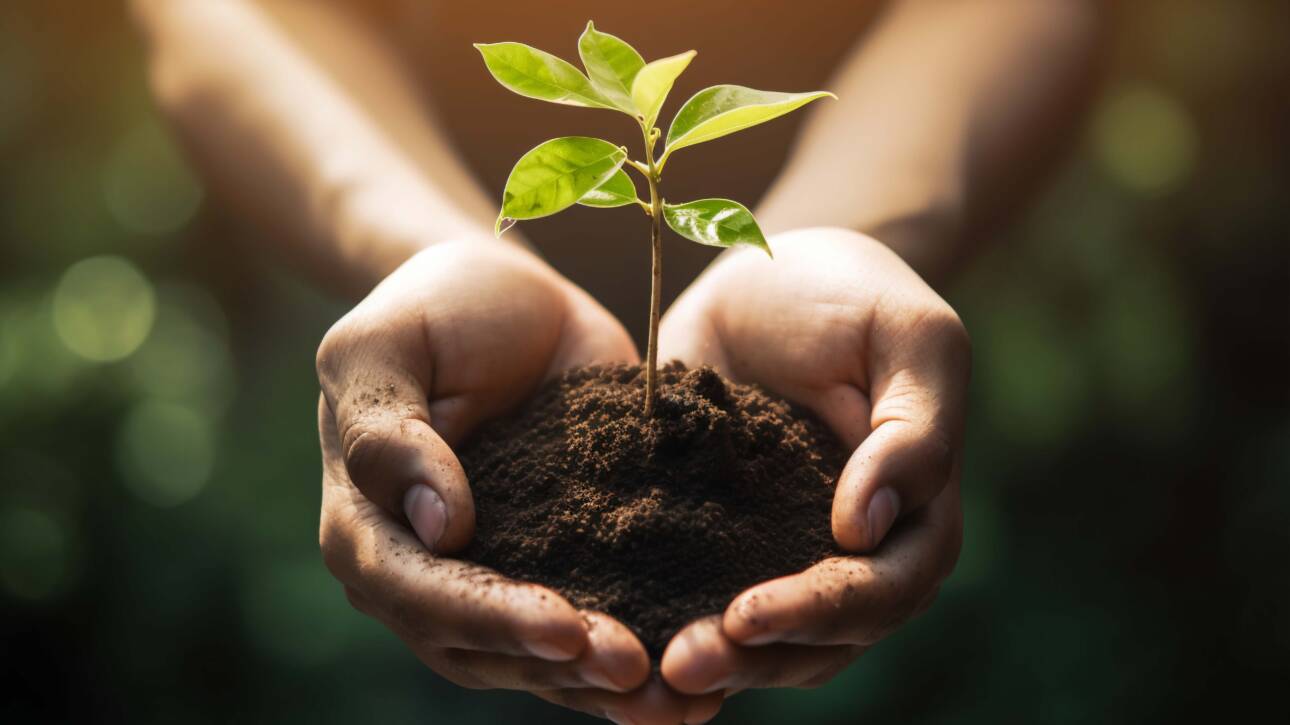
Plant-Based Plastics
Welcome to Proviva, where innovation meets sustainability. Since our inception in 2020, we have been dedicated to providing biodegradable products and compostable packaging, using next-generation plant-based biopolymers.
Our passion drives us to seek innovative sustainable alternatives to plastic that not only meet the needs of today, but also preserve the environment for future generations.

Our Sustainable Products
We make eco-friendly, biodegradable, and compostable products that don’t just work – they work better than plastic.
Carry & Shopping Bags
Grocery Bag
Garbage Bag/ Bin Liner
Liner Bag
Pouch
Fresh Produce Bag
Apparel Bag
Nursery Bag
Courier Bag
Pet Poop Bag
Product Life Cycle – Why Choose Proviva
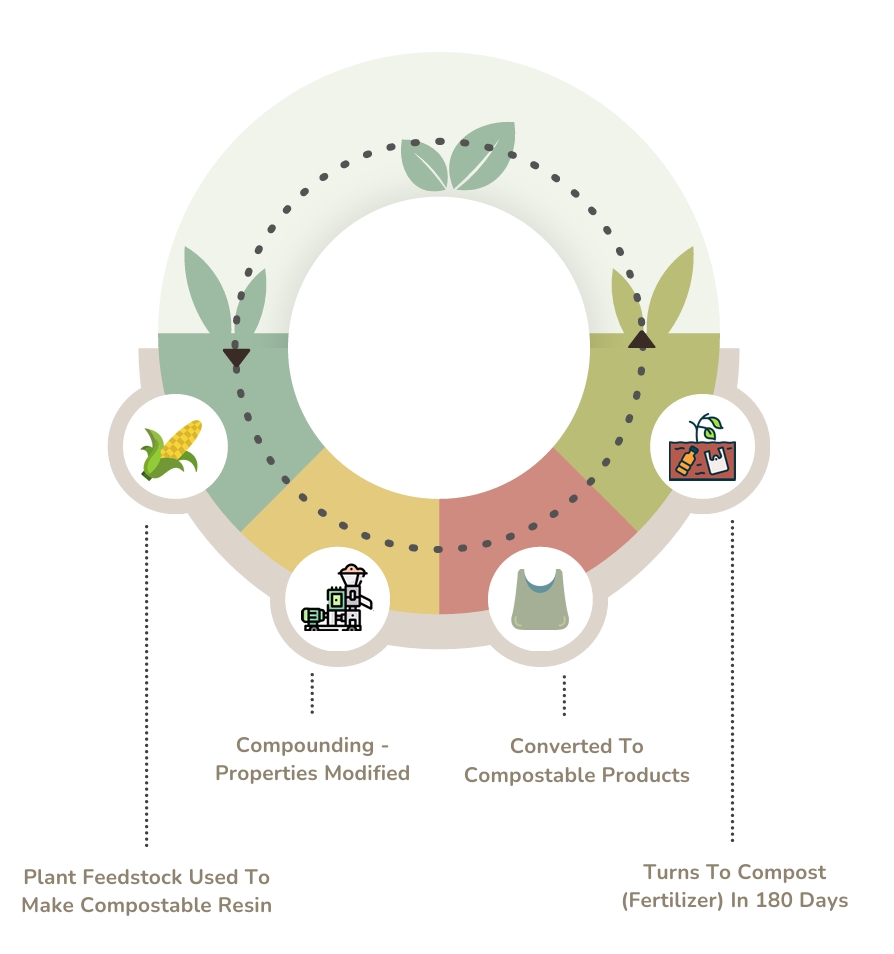
Compostable Plastic Alternatives
Our sustainable disposable products are non-toxic alternatives to traditional plastic; derived from varied sources like lactic acid, starch, algae, bio-waste, cellulose. They degrade within 180 days into compost, to yield CO2, water, inorganic compounds, and biomass in accordance with ISO 17088.
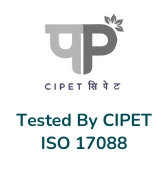

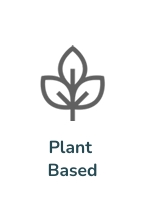
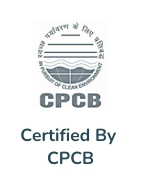


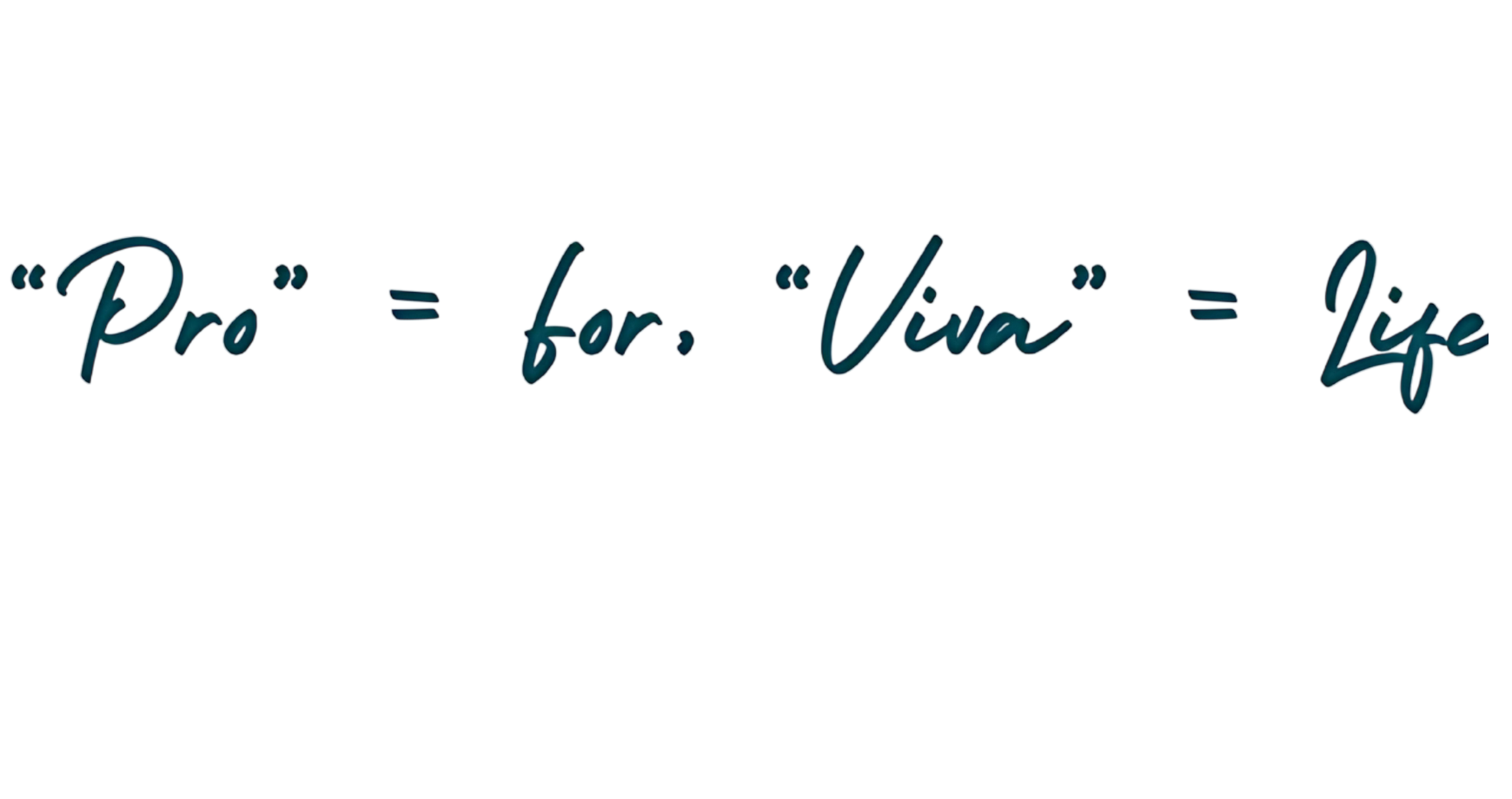
FAQs
Bioplastics plastics offer the same properties as conventional plastics while also providing the distinct benefit of reducing reliance on fossil resources. Compostable products enhance end-of-life management options as organic recycling becomes a viable end-of-life alternative.
Confusion around bioplastics is well justified. There are different types of biopolymers such as PLA, PHA, PBAT, TPS, bio-PE, bio-PP, etc. Bioplastics can be biobased or fossil based; compostable and non-compostable. At Proviva, we use a blend of biobased and fossil based biopolymers, which completely turn into compost within 180 days.
As per Central Pollution Control Board (CPCB) guideline, bioplastic products sold in India have to be certified as per ISO 17088 international standard which conducts Disintegration, Aerobic Biodegradation, Compost Testing and Heavy Metal Analysis tests. Once certified, the products should bear manufacturer details, and are allowed to be sold without any minimum micron regulation.
Research and development costs continue to account for a portion of the investment in bioplastics, influencing material and product prices. However, there are several examples of cost competitive bioplastic materials and products. For instance, price per unit is lower for products like compostable bags due to minimum micron regulation.
FAQs
FAQs
Bioplastics plastics offer the same properties as conventional plastics while also providing the distinct benefit of reducing reliance on fossil resources. Compostable products enhance end-of-life management options as organic recycling becomes a viable end-of-life alternative.
Confusion around bioplastics is well justified. There are different types of biopolymers such as PLA, PHA, PBAT, TPS, bio-PE, bio-PP, etc. Bioplastics can be biobased or fossil based; compostable and non-compostable. At Proviva, we use a blend of biobased and fossil based biopolymers, which completely turn into compost within 180 days.
As per Central Pollution Control Board (CPCB) guideline, bioplastic products sold in India have to be certified as per ISO 17088 international standard which conducts Disintegration, Aerobic Biodegradation, Compost Testing and Heavy Metal Analysis tests. Once certified, the products should bear manufacturer details, and are allowed to be sold without any minimum micron regulation.
Research and development costs continue to account for a portion of the investment in bioplastics, influencing material and product prices. However, there are several examples of cost competitive bioplastic materials and products. For instance, price per unit is lower for products like compostable bags due to minimum micron regulation.



